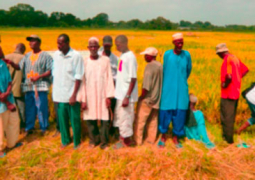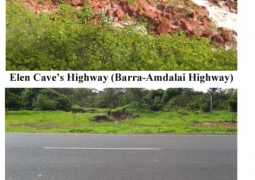This dire situation has made it seriously urgent for us as a nation to fight climate change, particularly land degradation and desertification.
It is a fact that large areas once covered with dense forests have now been degraded and become wastelands “impossible or costly to recover”.
Weather patterns are also aggravating the situation as they have become unpredictable with devastating effect of droughts and floods.
Because the forest lands have now become wastelands, free flow of heavy winds have become the order of the day, which is also wreaking havoc on the environment, thereby eroding the soils of their nutrients, which are essential for agricultural production.
“[This situation is] depriving us of our livelihoods and forcing many people into poverty and out-migration,” said an Environment ministry official.
Furthermore, the FAO has also said fish-based livelihoods and fisheries ecosystems are subject to a range of climate variability, from extreme weather events, including flooding and occurrence of droughts through to changes in patterns and abundance of fish stocks.
“Fisheries managers and resources users are confronted with the challenges in responding to climate changeand variability,” the FAO has said.
All are, therefore, encouraged to engage in activities geared towards solving the problems of desertification, land degradation and droughts.
The people in concert with the Gambia government should also observe or strengthen the implementation of the Gambia Forest Management Concert (GPMC), the National Action Programme (NAP) to combat desertification and the National Biodiversity Strategic Action Plan (NBSAR).
These are all geared towards ensuring that climate change problems are tackled, with a view to reducing poverty, enhancing rural livelihoods and protection of the environment.
“The eroding livelihoods and sources of empowerment are negatively affecting income levels of fisheries-dependent communities being made by the sector to poverty reduction, food and nutritional security at the community and country levels,” the FAO said, adding: “This is hampering efforts being made toward the attainment of the Millennium Development Goals in these countries.”
We should all, therefore, be committed to averting climate change problems. As anything we do that add to the climate change challenge would be like shooting ourselves in the foot, because the effects of climate change and land degradation would result in hampering our livelihoods.
“Climate change is a terrible problem, and it absolutely needs to be solved. It deserves to be a huge priority.”
Bill Gates





